Communication, Language, & Speech through a DIR® Lens: From the Cradle to the Classroom and Beyond!
"Wonderful and amazing! Well done all! So grateful to all of you for your dedication and commitment." - "Absolutely inspiring conference!" - "Sooooo happy this conference dedicated to communication came to fruition!!" - "Thank you all for an inspiring learning experience!" - "Beautiful conference! Thank you all for sharing your expertise and passion for this work!"
All parents eagerly await their child’s first words. Eventually, as children develop more and more language, they share with those around them, who they are becoming. Yet for many children with developmental disorders, communication, language, and speech challenges are pervasive. The absence, late emergence, or unique patterns of speech and language development are often the first concern that parents bring to specialists in every discipline. Educators, mental health clinicians, occupational therapists, and others interacting with language-impaired children wonder how to integrate evidence-based language facilitation strategies into their own discipline’s priorities.
The focus of this conference was to provide a clear understanding of the foundations of early and later language capacities and to illustrate how this information helps us meet the challenges that each child faces.
DIR® interdisciplinary experts addressed the language and communication difficulties seen in infants, young children, school-aged children, and young adults with autism spectrum disorders. In addition, our internationally renowned guest speaker, Carol Westby, discussed two topics of particular interest to this population of children and young adults – theory of mind and autobiographical memory. Special attention was given to the language and communication issues that emerge at different points across the lifespan and in different contexts of the child’s life, such as home, school, and work settings.
The goal of the conference was to provide a comprehensive understanding of the language development process and to translate this information into evidence-based intervention approaches.
It is our hope that the unique integration of developmental language models and the DIR® approach gave participants an opportunity to rethink their communicative interactions with children and young adults who are struggling to find the words to tell us who they are.
As a result of this conference you will be able to:
- identify three hallmarks of prelinguistic development which impact the acquisition of language and communication.
- describe the relationship between symbolic play, theory of mind, emotional development, and language.
- determine developmentally appropriate goals to address with individual children.
- identify strategies that can be adapted by parents and all practitioners to support the development of language and communication in children on the autism spectrum.

Conference Committee
Sima Gerber, PhD, CCC-SLP; Chair
Gilbert Foley, EdD, IMH-E
Jennifer Hein, OTR/L
Mary Ann O’Connell, MA, CCC-SLP
Michele Ricamato, MA, CCC-SLP
Ruby Salazar, LCSW, BCD
Serena Wieder, PhD
Sunday, April 7, 2024
...
Welcome to DIR® and Developmental Language Models of Assessment and Intervention
In this presentation, the foundational principles of DIR® and Developmental Language models will be briefly outlined. The overlapping developmental constructs of these two models will be clarified and the shared assessment and intervention goals and strategies will be outlined.
As a result of this presentation, participants will be able to:
- Describe the foundational principles of DIR®.
- Describe the foundational principles of Developmental language models.
- List three goals and three strategies of intervention that would be common to both the DIR® and Developmental language models.
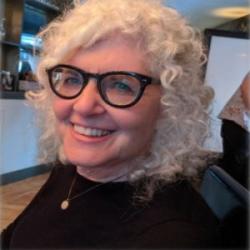
Sima Gerber, PhD, CCC-SLP
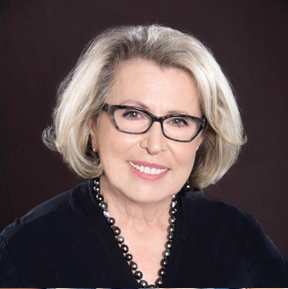
Serena Wieder, PhD
Language as an Organizer of Self
Essential elements of the experienced-self are coherence, wholeness, continuity, centrality and active vitality. Language serves a key role in weaving and subsuming the multi-faceted features of the self into a coherent and relative integrated superordinate gestalt. Language synthesizes, conceptualizes and mentalizes the corporeal self into a representational self that is able to be grasped in the gasp of “I”.
This presentation examines the role of language development in organizing, consolidating and differentiating the forming and unfolding self. The voice of the mother is an important “zero point” around which the infant orients, organizes and regulates herself. Gestures both differentiate the self from “other” and promote joint attention. Shared intentionality and meanings are bridges to theory of mind. Dialogue at all levels along the language continuum from gesture to conversation sanctions the self to be experienced as both subject and object. Language comprehension is the portal to joining the social world. The spoken word allows the child to stay connected to mother over distance serving an important regulating function, furthering the separation individuation- process and sharpening the self-observing self. Language elaborates the sense of self, identity and intercultural communication.
As a result of this presentation, participants will be able to:
- Define central attributes of the self.
- Explain at least 3 ways that language promotes features of self- development.
- Identify early language markers of self-regulation.
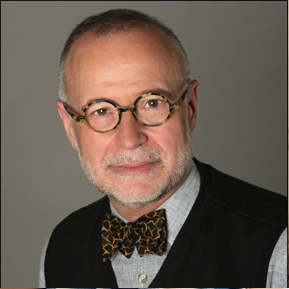
Gilbert Foley, EdD, IMH-E
Detect and Connect: The Path to Intentional Communication
As babies weave intention into their cries and coos, they're not just expressing needs, they're creating the building blocks for a shared world of meaning. We, the caregivers, are nurturing the collaborative development of early communication. This presentation will discuss the development of intentional communication as well as emphasize the role of the caregiver in responding to and nurturing the child’s communication attempts. Participants will have the opportunity to see video clips with accompanying slides to enhance specific concepts.
As a result of this presentation, participants will be able to:
- Explain the role of the caregiver in nurturing intentional communication.
- Describe the stages of intentional communication.
- Describe 3 strategies to support intentional communication.
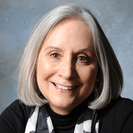
Sherri Cawn, MA, CCC-SLP
Theory of Mind
Theory of mind (ToM) deficits and delays are particularly associated with autism, but are characteristic of persons with a variety of communication impairments. Deficits in ToM are associated with difficulties making appropriate inferences in social and academic situations, and hence with poor social interactions and oral and written language comprehension deficits. ToM is not a unitary construct. Research has documented 5 types of ToM each with a different neurological underpinning. The difficulties that have been explained by ToM are also being explained in terms of context blindness and a prediction disorder. Given the role of ToM in social and academic functioning, it is important that service providers recognize behaviors that indicate delays/deficits in the different types of ToM and have strategies for assessing and developing the range of ToM skills in persons they serve. This presentation will describe the types of ToM, the developmental stages of ToM, the nature of context blindness and prediction disorder.
As a result of this presentation, participants will be able to:
- Describe 5 types of theory of mind.
- Describe and assess the developmental stages of theory of mind in children from infancy through adolescence.
- Explain how the concepts of context blindness and prediction disorder explain difficulties in social interpretation.
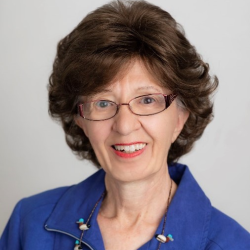
Carol Westby, PhD, CCC-SLP
Autism & Gesture (breakout 1a)
This session will begin by infusing foundational elements of the DIR® model, regulation, affective engagement, and shared attention with an overview of intentional communication development highlighting gestural development in pre-linguistic and early linguistic children.
Next, a summary of gesture and autism studies will illustrate current information about gestural development and autism compared to non-autistic children. A strength-based model will guide the construction of this session, as the aim is not to compare/contrast autistic and non-autistic children from a deficit-based model. The goal is to convey the importance of understanding gestural development with autistic and non-autistic children to appreciate ways of supporting families and their children to engage in pathways that align and support individual differences but retain developmental elements foundational to communication and language development.
As a result of this presentation, participants will be able to:
- Summarize sequence of developmental gestures in non-autistic & autistic children in pre-linguistic and early linguistic stages of child development.
- Observe at least two similarities in gestural development when comparing autistic & non-autistic children based on research to date in prelinguistic and early linguistic stages of child development.
- Identify two ways the DIR® model supports development of intentionality, gestures, communication, and language.
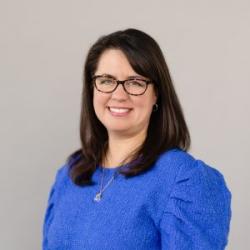
Mary Ann OConnell, MA, CCC-SLP
Adapting and Creating Curriculum that Ensures Comprehension and Meaningful Learning (breakout 2a)
Educational environments offer unique learning opportunities for all students when curriculum can be created and adapted to ensure understanding of the content and language presented. In this presentation, Soaring Eagle Academy Speech and Language Pathologists will present a brief overview of how they prioritize comprehension in every academic learning experience to ensure meaningful learning and personal connections for students of all learning profiles.
As a result of this presentation, participants will be able to:
- Describe the importance of comprehension while engaged in learning of academic material.
- Explain how mainstream curriculum can be adapted to support various comprehension levels and student profiles.
- Describe how the literacy specific activities can be creatively adapted to support language comprehension and language learning.
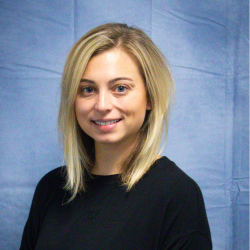
Kristina Anselmo, MS, CCC-SLP
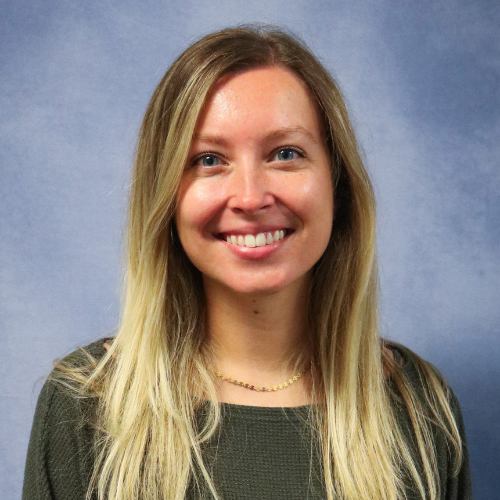
Sara DuBois, MS, SLP
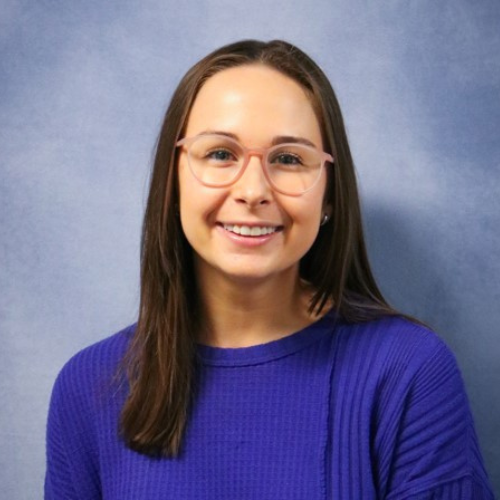
Amanda Posegay, MS, CCC-SLP
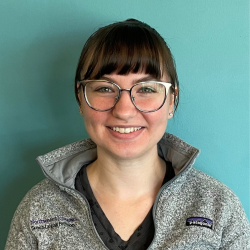
Kelsi Rarick, MS, CCC-SLP
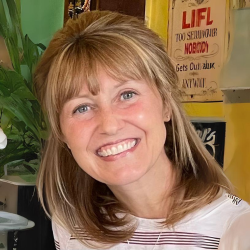
Michele Ricamato, MA, CCC-SLP
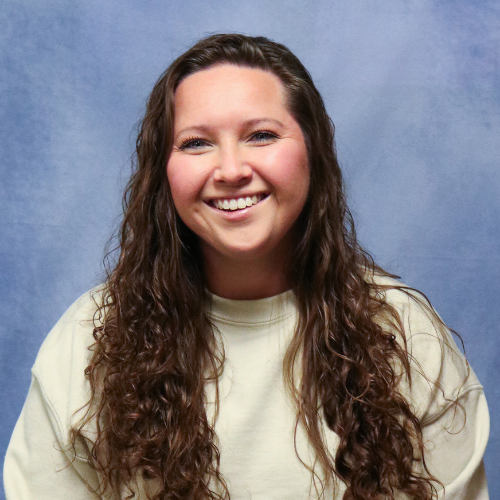
Brittany Spoeri, SLPA Candidate
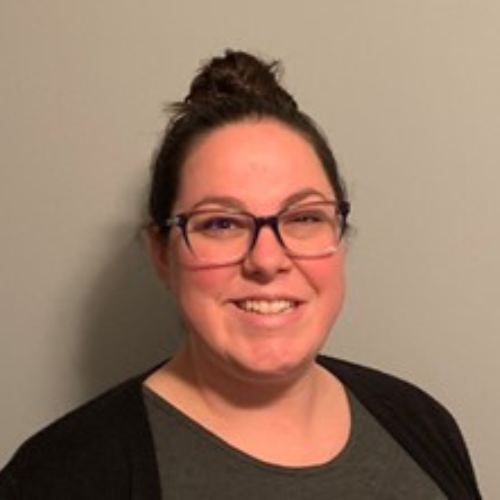
Courtney Sullivan, MS, CCC-SLP/L
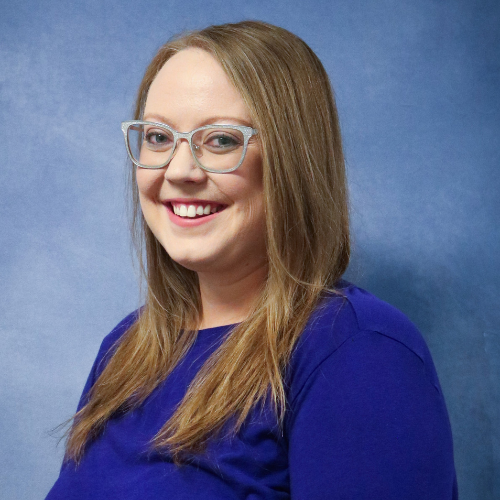
Kalina Waszak, MS, CCC-SLP
Supporting Gestalt Language Processing through a Developmental Approach: A Case Study (breakout 3a)
Please join Jordan and Liesl - long time developmental Speech Language Pathologists - as they present a case study with a child identified as a gestalt language processor. Learn the basics of the Natural Language Acquisition framework and see how it was used as a beneficial addition to the developmental model in understanding and supporting the progression of this child's echolalic communication.
As a result of this presentation, participants will be able to:
- Summarize the history and research behind the Natural Language Acquisition framework.
- Describe the Stages of Natural Language Acquisition and suggested implementation strategies.
- Analyze how this framework could be incorporated within a developmental approach.
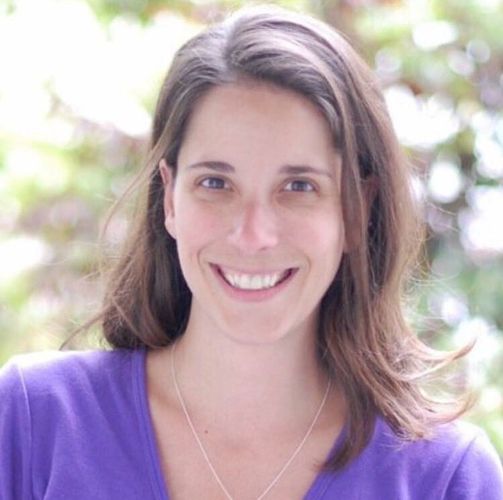
Liesl Hartmann, MA, CCC-SLP, BCS-CL
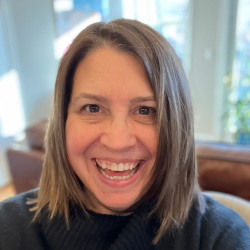
Jordan Sadler, MS CCC-SLP
Telling My Stories: The Role of Autobiographical Memory
Telling coherent personal narratives requires skills in addition to knowledge of narrative macrostructure and interpersonal Theory of Mind (ToM). The ability to tell coherent personal stories is dependent on the formation and retrieval of autobiographical memories (AM). To design appropriate therapeutic objectives to promote persons’ ability to tell coherent personal narratives, interventionists need to understand the nature and role of AM. This session will describe: (a) the nature of AM, (b) AM characteristics of persons with different types of communication impairments, (c) assessment of AM, (d) effects of deficits in AMs on the personal narratives, self-regulation, and self-identity of persons with ASD, and (e ) intervention strategies to facilitate AM and the abilities of persons with ASD to tell coherent personal narratives.
As a result of this presentation, participants will be able to:
- Describe the nature of autobiographical memory.
- Explain the relationships between theory of mind, autobiographical memory, and narrative skills.
- Evaluate children’s AM and personal narratives.

Carol Westby, PhD, CCC-SLP
Continuation of Telling My Stories: Discussion with Dr. Westby and Dr. Gerber on Theory of Mind and Autobiographical Memory

Carol Westby, PhD, CCC-SLP
Sunday, April 14, 2024
...
Developmental Transitions and Affect Transformations to Symbolic Communication in Play and Language
Children first communicate intentions through vocal and gestural signals and transition to using symbols to communicate their ideas and feelings during play. Play tells us more than what they can yet say in verbal language and gives us a picture of their inner worlds, their body experience, and their emotions. In DIR® theory symbols emerge from six levels of affective signaling through infant/caregiver interactions that separate perceptions from actions, transform into images and are expressed in verbal symbols (language) that capture emotional experiences. During this session we will examine the parallel and interactive processes in the development of symbolic play and language, an uneven course for many children with special needs, as well as the hierarchy of emotions that get symbolized leading to symbolic abstract thought. We will look at disruptions related to scripting and emotional constrictions and their impact on the development of self.
As a result of this presentation, participants will be able to:
- Identify the parallel processes in the development of symbolic play and language.
- Explain how symbols are formed.
- Describe the hierarchy symbolizing emotions.

Serena Wieder, PhD
Something for Everyone: A Contemporary Assessment and Intervention Approach for Children with Challenges in Communication, Language, and Speech
Participants will be introduced to a contemporary developmental language paradigm (Gerber & Ricamato, 2023) which can be used to generate goals for children at various stages of language and communication development. Using an observational assessment/intervention checklist developed by the presenters (DOLLI, 2023), the advantages of a protocol that goes seamlessly from assessment to intervention will be considered.
The overarching message of this presentation is that all therapeutic/educational interactions involve communication and language. Therefore, all professionals working with children with challenges in these areas can more successfully accomplish their goals by embracing facilitating strategies for language development.
Parents will be given a framework from which they can better understand the nature of their children’s challenges in language and communication. The value of addressing capacities other than expressive language will be discussed and illustrated.
As a result of this presentation, participants will be able to:
- Summarize the foundational capacities that underlie the ability to comprehend and produce language (Gerber & Ricamato, 2023).
- State the key components of a contemporary paradigm for the assessment and intervention of language capacities (Gerber & Ricamato, 2023).
- Differentiate priorities for language intervention that can be integrated into all educational and clinical interactions.

Sima Gerber, PhD, CCC-SLP

Michele Ricamato, MA, CCC-SLP
Creating a Meaningful Life: Pre-employment and Employment Supports for Neurodivergent Individuals
This presentation will explore how speech language pathologists can support neurodivergent individuals to experience success in the workforce. The presentation will focus on the role of the SLP in preparing neurodivergent individuals to enter the workforce and to experience success in the workplace.
As a result of this presentation, participants will be able to:
- Identify 5 barriers to success for neurodivergent individuals in the workplace.
- Identify 5 attributes of neuroinclusive work environments.
- Identify 3 approaches to supporting a neurodiverse individual in the workplace.
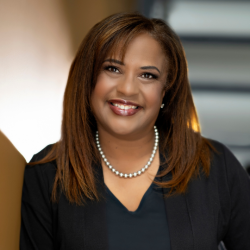
Cindy Harrison, MSc Reg CASLPO
Neither Comprehension nor Learning Can Take Place in an Atmosphere of Anxiety (breakout 1b)
Stress responses within an educational setting and at home create concern, worry, and feelings of failure for both staff and parents. These stress responses can result in a range of responses including but not limited to eloping/fleeing an environment, aggression towards self or others, property destruction, and verbal fight/flight. For children, learning “to behave” is a developmental process. A brief overview of how to think about stress responses in the moment prioritizing “what is the child communicating? ” and “what does the child understand?. These two components of stress responses are rarely understood or supported. Preventative and proactive strategies will be discussed.
As a result of this presentation, participants will be able to:
- List 3 supports and strategies learned through broadening their understanding of the importance of language comprehension in supporting regulation.
- Describe 3 conventional or unconventional intents to recognize as intentional communication to facilitating regulation during times of stress.
- Compile a consistent plan of proactive and in the moment comprehension and communication supports to utilize to facilitate regulation, decrease periods of stress and facilitate the child’s ability to predict and understand adult response.
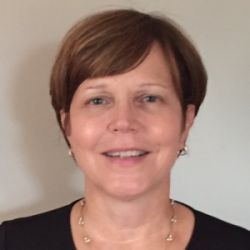
Linda Cervenka, MA, CCC-SLP
Language All Day, Everyday: Using Augmentative Alternative Communication To Keep The Conversation Going. Is it possible? (breakout 2b)
This breakout session will discuss the barriers of augmentative and alternative communication (AAC) to become a competent language user. Intrinsic and extrinsic factors will be discussed that need to be considered to improve functional communication and improve shared meaning. Discussion will extend to fostering child agency by responding to multimodal communication that is used and supporting child-led initiations of topics. Video examples will be used for: teaching the power of AAC for early communication: integrating AAC use within natural contexts to promote a mutual connection among people and foster social closeness; training staff and parents directly and by overt use throughout the school day.
As a result of this presentation, participants will be able to:
- State the challenges that get in the way of successful augmentative and alternative communication (AAC) use (Intrinsic and Extrinsic Elements).
- Observe ways to support the generalization of augmentative and alternative communication (AAC) use outside the therapy room.
- State the functions of language that lead to robust language use.
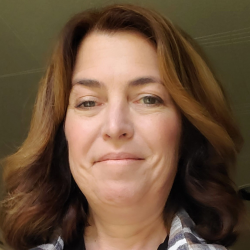
Michelle Attardi, MA, CCC-SLP
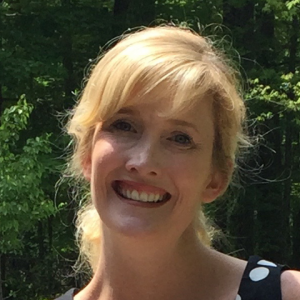
Lauren Blaszak
Essentially Families (breakout 3b)
This workshop will provide important theoretical and pragmatic information and facilitate in-depth discussion about the importance of multi-disciplined professionals working with families and/or holding them in mind when doing developmental-relational work such as DIR®.
What supports good human functioning is family balance and health through the integration of developmental elements over time. Safe relational environments provide resources and foundation for varied ecological opportunities and challenges of living and growing across the lifespan.
Techniques to engage in ongoing and meaningful partnerships with parents will be reviewed. Thus, we will go beyond “coaching.” Using multiple case vignettes, working in person and virtually to facilitate parent-child and sibling cohesiveness, family health, team development and strength in a meaningful community life will be deepened.
As a result of this presentation, participants will be able to:
- Describe a minimum of five reasons why working with families is preferred over just coaching parents or not significantly holding the family in mind.
- Describe theoretical and pragmatic reasons why working with parents, siblings and family is imperative to successful long-range outcomes for a child with special needs.
- List hands-on techniques, meaningful across professional disciplines, for working with families.

Ruby Salazar, LCSW, BCD
How Has the DIR® Model Influenced My Practice as a Speech and Language Pathologist? (breakout 1c)
Speech and Language Pathologists come from varied backgrounds, education and training. In this breakout presentation, participants will be exposed to experienced practitioners who have trained in the DIR® model as they share their personal experiences and journeys. Participants will be involved in an open discussion about how DIR® can positively impact their work in the diverse field of Speech and Language.
As a result of this presentation, participants will be able to:
- Describe the impact that the DIR® model can have on the practitioner working in the field of speech and language.
- Describe how the holistic understanding of development and the whole child, adolescent or adult can enhance the work of the speech and language pathologist.
- Discuss how their own journey as a speech and language pathologist has been or can be positively influenced by the DIR® model.
*Mental Health continuing education credits are not offered for this presentation.
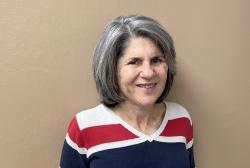
Lynn Abelson, MA, CCC-SLP, OT
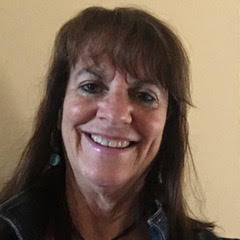
Marilee Burgeson, MA, CCC-SLP
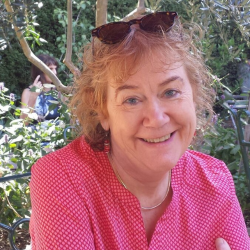
Mari Caulfield, LCST, SLP, MIASLT, MRCSLT

Linda Cervenka, MA, CCC-SLP
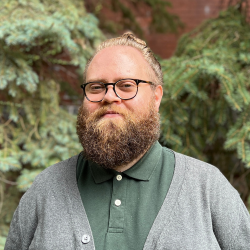
Tyler Choate, MS, CCC-SLP
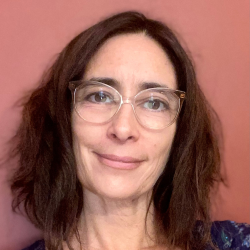
Socorro Cornejo, SLP
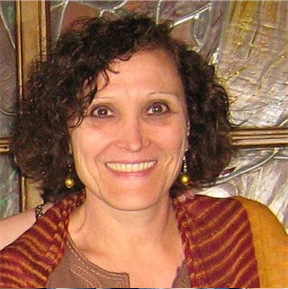
Nora Dangiola, PhD, CCC-SLP
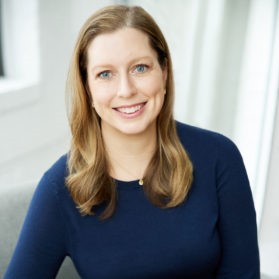
Caroline Ferguson-Walsh, MS-LP(C), CCC-SLP
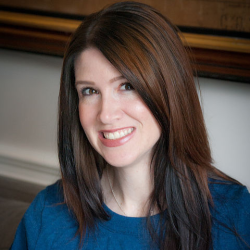
Cortney Grove, MA, CCC-SLP, I/ECMH-C

Liesl Hartmann, MA, CCC-SLP, BCS-CL
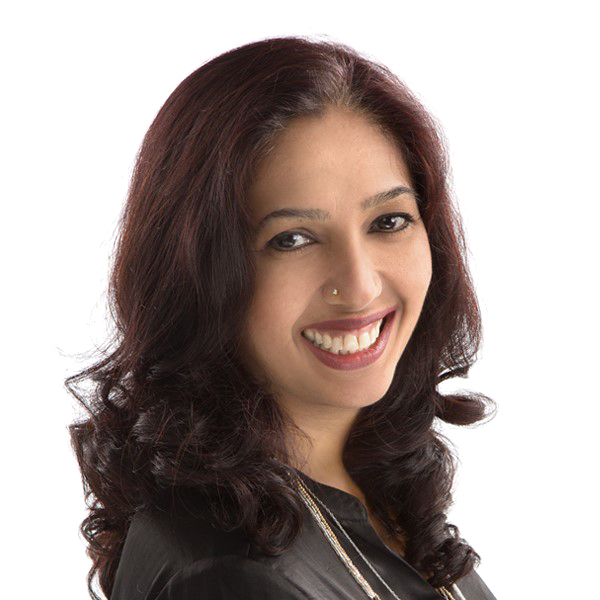
Chithra Kathiresan, SLT

Michele Ricamato, MA, CCC-SLP
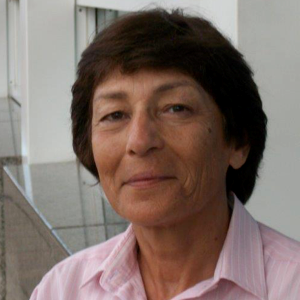
Jehan Shehata-Aboubakr, BA, CCC
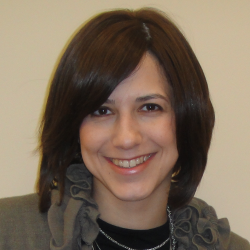
Yuta Weiss, MS, CCC-SLP
How to integrate information from the Speech Language Pathologist into my work as an Occupational Therapist, Mental Health practitioner, or Educator (breakout 2c)
Speech Language Pathologists serve an important function when collaborating with professionals from all disciplines. In this breakout session, educators and clinicians will share their experiences and discuss how an understanding of each child’s language challenges can help support their discipline’s work. Participants will be invited to engage in an open dialogue and gain a deeper understanding of the interplay between speech-language therapy and intervention goals in educational and clinical settings.
As a result of this presentation, participants will be able to:
- Explain ways that a Speech Language Pathologist can support development across disciplines.
- Identify ways that a Speech Language Pathologist can contribute to professionals in other disciplines to understand a child’s regulation/learning abilities.
- Identify ways that a Speech Language Pathologist can support professionals in other disciplines to create meaningful treatment activities through a richer understanding of the child's developmental language profile.
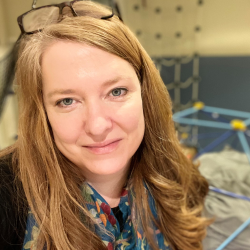
Rebecca Berg, MS, OTR/L, IMH-E

Breindel Ganzvi, MSEd
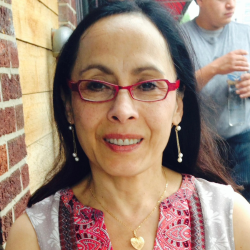
Jeannie Gutierrez, PhD

Faigy Halpern, OT
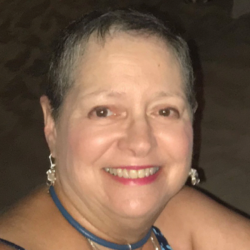
Michele Havens, EdD
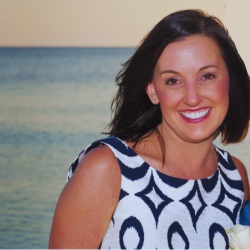
Jennifer Hein, OTR/L
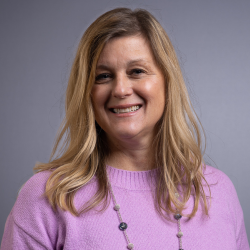
Maureen Karwowski, OTR/L
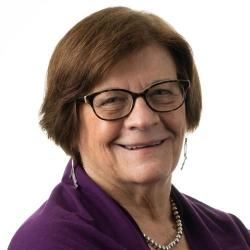
Beth OSTEN, PhD, OTR/L
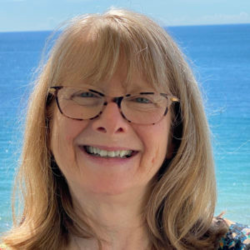
Susan Rindner, Early childhood Education/Special Education
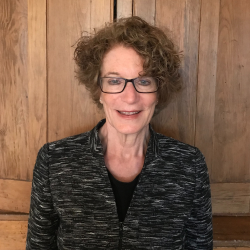
Diane Selinger, PhD
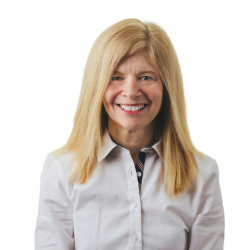
Susan Smith-Foley, OTD, MPA, OTR/L
DIR®: A Parent’s Perspective (breakout 3c)
This workshop will be presented by an SLP and a parent and will discuss the critical importance of the parent in DIR® based treatment.
As a result of this presentation, participants will be able to:
- Cite the difference between parent mediated models of intervention and approaches that are not parent mediated.
- Identify 3 key components of working successfully with parents.
- Identify coaching supports to engaging parents and their children.

Cindy Harrison, MSc Reg CASLPO
Voices Across The Disciplines: Takeaways And Future Goals Panel
Based on the information presented, a small group of presenters who represent different disciplines (mental health, occupational therapy, speech-language therapy, education) will share specific takeaways from the conference. The panel will be asked to make recommendations for next steps in the areas of language and communication for their discipline’s colleagues.
As a result of this presentation, participants will be able to:
- Describe major implications of information on language and communication for each discipline
- Propose specific learning activities for practitioners in each discipline to enhance their knowledge of language facilitation strategies
- Describe shifts in their thinking relative to parent-mediated intervention in their discipline

Lauren Blaszak

Gilbert Foley, EdD, IMH-E

Jennifer Hein, OTR/L

Mary Ann OConnell, MA, CCC-SLP

Ruby Salazar, LCSW, BCD

Serena Wieder, PhD

Lynn Abelson, MA, CCC-SLP, OT

Kristina Anselmo, MS, CCC-SLP

Michelle Attardi, MA, CCC-SLP

Rebecca Berg, MS, OTR/L, IMH-E

Lauren Blaszak

Marilee Burgeson, MA, CCC-SLP

Mari Caulfield, LCST, SLP, MIASLT, MRCSLT

Sherri Cawn, MA, CCC-SLP

Linda Cervenka, MA, CCC-SLP

Tyler Choate, MS, CCC-SLP

Socorro Cornejo, SLP

Nora Dangiola, PhD, CCC-SLP

Sara DuBois, MS, SLP

Caroline Ferguson-Walsh, MS-LP(C), CCC-SLP

Gilbert Foley, EdD, IMH-E

Breindel Ganzvi, MSEd

Sima Gerber, PhD, CCC-SLP

Cortney Grove, MA, CCC-SLP, I/ECMH-C

Jeannie Gutierrez, PhD

Faigy Halpern, OT

Cindy Harrison, MSc Reg CASLPO

Liesl Hartmann, MA, CCC-SLP, BCS-CL

Michele Havens, EdD

Jennifer Hein, OTR/L

Maureen Karwowski, OTR/L

Chithra Kathiresan, SLT

Mary Ann OConnell, MA, CCC-SLP

Beth OSTEN, PhD, OTR/L

Amanda Posegay, MS, CCC-SLP

Kelsi Rarick, MS, CCC-SLP

Michele Ricamato, MA, CCC-SLP

Susan Rindner, Early childhood Education/Special Education

Jordan Sadler, MS CCC-SLP

Ruby Salazar, LCSW, BCD

Diane Selinger, PhD

Jehan Shehata-Aboubakr, BA, CCC

Susan Smith-Foley, OTD, MPA, OTR/L

Brittany Spoeri, SLPA Candidate

Courtney Sullivan, MS, CCC-SLP/L

Kalina Waszak, MS, CCC-SLP

Yuta Weiss, MS, CCC-SLP

Carol Westby, PhD, CCC-SLP

Serena Wieder, PhD
General Overview
General Certificates of attendance will be emailed the week following the last day of the Conference. To receive a certificate, attendees must attend the conference "live" (in real-time). Hours of attendance are taken from the Zoom attendance logs.
American Occupational Therapy Association (AOTA)
For learners that have signed up for continuing education credit for Occupational Therapy (AOTA), you are required to complete the following course requirements:
- Learners must attend the conference day in real time for the full scheduled time. Credit will only be awarded for learners who attend the entire day.
- Complete post conference quiz with 80% or better score.
- Complete conference evaluation (per day)
- Submit learner identification information (AOTA)
If you have any questions or concerns regarding the process for AOTA CE credits, please contact Profectum Foundation 973-531-4376 or email emily.mohr@profectum.org. 267 Main St., Ste 2B, Chester, NJ 07930
Profectum Foundation is an AOTA Approved Provider of professional development. Course approval ID# 08907. This Distance Learning-Interactive is offered at .625 CEUs on April 7 and .55 CEUS on April 14, 2024. Intermediate level, OT Service Delivery/ Professional Issues / Foundational Knowledge. AOTA does not endorse specific course content, products, or clinical procedures.
For learners that have signed up for continuing education credit, you are required to complete the following course requirements:
- Learners must attend the Conference Day "live" (in real-time) for the full scheduled time. Credit will only be awarded for learners who attend the entire day. There are no prerequisites for this Conference.
- You will receive an email 1-2 after the last Conference day you were registered for with instructions on obtaining your Certificate. Participants print their own certificate after registering at CE-Classes.com, entering a keycode, and completing an evaluation form. Certificates are awarded online after completion of the Conference.
CE-Classes.com is the provider of (CEs). This Intermediate level Conference is approved for 6 CEs on April 7 and 5.5 CEs* for April 14, 2024. *Continuing education credits are not offered for How Has the DIR® Model Influenced My Practice as a Speech and Language Pathologist? presentation on April 14.
Licensed Professionals should contact their regulatory board to determine course approval. There are no known conflicts of interests for this workshop.
- The American Psychological Association (APA) Ce-Classes.com is approved by the American Psychological Association to sponsor continuing education for psychologists. Ce-Classes.com maintains responsibility for this program and its content.
- This course is NOT available for NBCC credit.
- This training does not offer ASWB ACE credit to social workers.
- The Florida Board of Clinical Social Work, Marriage and Family Therapy and Mental Health Counseling Provider #852 BAP-Expires 3/31/2025
- The California Board of Behavioral Sciences. The California Board of Behavioral Sciences, BBS, recognizes relevant coursework/training that has been approved by nationally recognized certifying bodies, such as APA, to satisfy renewal requirements.
- California Consortium of Addiction Programs and Professionals (CCAPP) Provider Number OS-12-174-0225 Expires 2-2025
- The Texas Board of Social Work Examiners – CE-Classes.com meets the requirements for acceptable continuing education
- The Texas Board of Professional Counselors – CE-Classes.com meets the requirements for acceptable continuing education
- Ohio Counselor, Social Worker and Marriage and Family Therapist Board – Approval from a state licensing board for counselors, social workers, marriage and family therapists is accepted by the OH CSWMFTB.
- New York Social Work Board – Ce-Classes.com is recognized by the New York State Education Department’s State Board for Social Work as an approved provider of continuing education for licensed social workers #SW-0120.
- New York Mental Health Practitioners Board CE-Classes.com, Inc. is recognized by the New York State Education Department’s State Board for Mental Health Practitioners as an approved provider of continuing education for licensed mental health counselors. #MHC-0260.
- New York Psychology Board CE-Classes.com, Inc. is recognized by the New York State Education Department’s State Board for Psychology as an approved provider of continuing education for licensed psychologists #PSY-0211
- The Florida Board of Nursing (CE Provider #: 50-4896) Expires 10/31/2024 Do not send certificates to the Florida Board of Nursing. You must keep this certificate for 4 years.
- The California Board of Registered Nursing. CEP 15647 Expires 11/30/2024.
- Massachusetts Authorization Number: TBD
Continuing Education Credits sponsored by CE-Classes.com
American Speech-Language-Hearing Association (ASHA)
April 7, 2024 is offered at .60 ASHA CEUS and April 14, 2024 is offered at .55 ASHA CEUS. Learners must attend the entire day, there is no partial credit.
For learners that have signed up for continuing education credit for Speech Language Therapy (ASHA), you are required to complete the following course requirements:
- Attend the conference "live" (in real-time) for the entire day. No partial credit is offered if the full day is not attended in its entirety.
- Complete a post conference evaluation at the end of each day
- Complete an ASHA participant form
There are no prerequisites for this Conference.
ASHA Continuing Education credits co-sponsored by Easterseals DuPage & Fox Valley
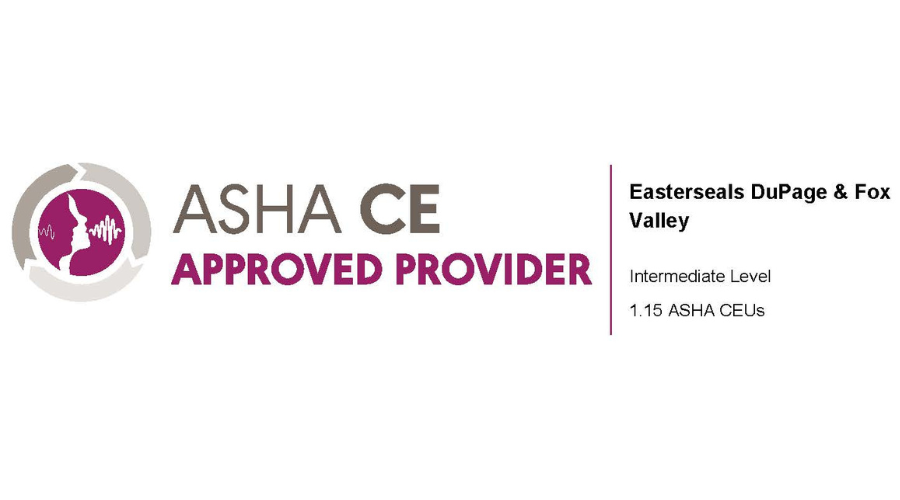
Welcome to DIR® and Developmental Language Models of Assessment and Intervention
Language as an Organizer of Self
Detect and Connect: The Path to Intentional Communication
Break
Theory of Mind
Lunch
Autism & Gesture (breakout 1a)
Adapting and Creating Curriculum that Ensures Comprehension and Meaningful Learning (breakout 2a)
Supporting Gestalt Language Processing through a Developmental Approach: A Case Study (breakout 3a)
Break
Telling My Stories: The Role of Autobiographical Memory
Continuation of Telling My Stories: Discussion with Dr. Westby and Dr. Gerber on Theory of Mind and Autobiographical Memory
Closing
Welcome Back!
Developmental Transitions and Affect Transformations to Symbolic Communication in Play and Language
Something for Everyone: A Contemporary Assessment and Intervention Approach for Children with Challenges in Communication, Language, and Speech
Break
Creating a Meaningful Life: Pre-employment and Employment Supports for Neurodivergent Individuals
Lunch
Neither Comprehension nor Learning Can Take Place in an Atmosphere of Anxiety (breakout 1b)
Language All Day, Everyday: Using Augmentative Alternative Communication To Keep The Conversation Going. Is it possible? (breakout 2b)
Essentially Families (breakout 3b)
Break
How Has the DIR® Model Influenced My Practice as a Speech and Language Pathologist? (breakout 1c)
How to integrate information from the Speech Language Pathologist into my work as an Occupational Therapist, Mental Health practitioner, or Educator (breakout 2c)
DIR®: A Parent’s Perspective (breakout 3c)
Voices Across The Disciplines: Takeaways And Future Goals Panel
Closing
General Information
Cancellations more than 10 working days (Mon-Fri) before the start date of this program will result in a refund less a $25.00 cancellation fee.
No refund can be given for a cancellation 9 or fewer working days (Mon-Fri) before this program start date. [ March 26, 2024 ]
Requests for refunds must be received in writing via email to conferences@profectum.org.
In the event that this program is cancelled, you will be notified immediately via email and a credit will be issued toward a rescheduled program, or the entire submitted fee will be refunded without further liability on the part of the organizer.
If you require ADA accommodations or have a special needs request, please email conferences@profectum.org at least two weeks before the program start date so arrangements can be made.
Profectum Foundation welcomes feedback from all participants and encourages the prompt resolution of grievances in a professional and timely manner. Profectum Foundation seeks to ensure equitable treatment of every person and to make every attempt to resolve grievances in a fair manner. Grievances regarding a particular Conference/ course should be directed to admin@profectum.org and will be sent to the appropriate Continuing Education Coordinator for review. All grievances are kept confidential and all persons are treated with respect and kindness as the parties involved work to resolve the grievance. If the grievance remains unresolved, it will be directed to Profectum’s Executive Director to resolve. Individuals not pleased with a grievance resolution provided by Profectum Foundation have the option to appeal to the Board if they are displeased with the results of the process.
Registration Fees
Profectum is committed to providing equitable access to our conferences across a wide span of constituencies, including across our many international stakeholders and attendees. In an effort to remove barriers to attendance, we are pleased to offer a sliding scale of registration fees. The “Community Supported” fee is available for anyone with financial or other hardships. The “Standard” fee is the set cost. The “Pay It Forward” fee enables you to assist in covering costs for others. There are no separate forms or processes; each registrant should choose the amount they are comfortable paying, and register at that price.
2 Day Registration
- Early Bird (until March 22nd): $275
- Standard (after March 22nd): $335
- Community Supported: $150
- Pay it Forward: $375
- Group 5+ (after March 22nd): $295
- Fee is per person, all from the same organization
- Parents and Students (no CEs): $75
- Student groups of 10 or more attendees (no CEs):
- Contact conferences@profectum.org for rates.
Recordings will be available up to 45 days post conference with a conference registration
1 Day Registration
- Early Bird (until March 22nd): $195
- Standard (after March 22nd): $235
- Community Supported: $125
- Pay it Forward: $275
- Group 5+(after March 22nd): $205
- Fee is per person, all from the same organization
- Parents and Students (no CEs): $75
- Student groups of 10 or more attendees (no CEs):
- Contact conferences@profectum.org for rates.
Recordings will be available up to 45 days post conference with a conference registration



















